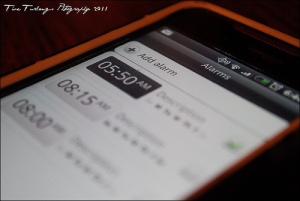In some of our past EC&I classes, we addressed society’s dependancy on technology and cell phones, and this was personally put to the test this week when I forgot my phone at work.
Now, most of us have faced the opposite problem – of forgetting our phone at home and then returning to get it, even if we were maybe going to be late getting to where we were headed. I always take my phone out of my purse at work and put into my desk drawer – I’m not exactly sure why I do this, but it may be because of the easier access in case I needed to get a hold of someone or someone was trying to get a hold of me. Sometimes, because Campbell is so big, teachers will just text each other if they need something – or maybe that is just my excuse to have my phone closely available at all times.
Either way, it was my niece’s birthday and I was in a rush after school, so I left without grabbing my phone from my drawer. Realizing this at my niece’s birthday party, I was left with quite the dilemma – do I go back to Campbell and get my phone, or survive the night without it? It was a real struggle, and in the end, my laziness won-out over my technology dependancy. So I spent the night without my phone, and it wasn’t easy. Not that I use my phone often, but just the idea of missing things, information, not getting back to someone right away, bothered me for most of the night. Even the fact that I had to actually set my alarm clock and not rely on my phone was a big enough change for me to not want to forget my phone ever again. After reading about solutions to tech problems for our class this week, I realized that perhaps I was feeling what we call nomophobia – the fear of being without a mobile device – which is a growing trend for our students.
I felt this was very telling about the dependancy in our society – and compared to the majority of my students, I am nowhere near as attached to my phone or the social media apps that can be found within it. I think the first step in solving problems we have with technology in the classroom is understanding where these problems originate. I know that my biggest problems in the classroom with technology have to do with the management of its misuse – the constant snapchatting, netflix-usage, and, your good ol’ fashioned texting. Coming from a place of understanding – why are they so attached to their phones – will help me find solutions for how to change this trend into something positive. I know completely getting rid of their phones or taking them away isn’t the answer – even though some schools are doing that as I explored last week – but what else could be?

Photo Credit: David Lee King Flickr via Compfight cc
There are a multitude of blog posts and articles that deal with solutions to possible problems that technology brings – from the students knowing more about an app than you do, to them using internet as a crutch, to teachers misusing it in their classrooms, to the “administrative” tech problems and other types of tech glitches, and even to the problems of technology being used as the lesson, and not as the tool. There are a multitude of problems that require solutions when it comes to technology, and I could have focused on a variety of these problems and their respective solutions. However, as we are focusing on our specific educational contexts for this directed reading course, I wanted to focus on the biggest problem I am seeing in my French Immersion Social Studies course:
Technology as a distraction
Ah, the obvious problem we all have heard, felt or seen personally in the classroom. Technology can be great – but it can also be a serious distraction for students in the classroom as they become more interested in the games on their phones or their access to social media than they are in the lesson. As I have admitted, this is a struggle in my classroom and I see this every day – so it is a definite technology problem that I need to fix.
Researchers have demonstrated that the mere presence of a phone makes people less productive and less trusting, and that students who are interrupted while studying take longer to learn the material and feel more stressed – Larry Rosen and Alexandra Samuel

Photo Credit: Five Furlongs Flickr via Compfight cc
So what can fix this problem? Well, there is no easy solution, but Larry Rosen and Alexandra Samuel each share different possibilities in their article Conquering Digital Distraction. Rosen suggests slowly weaning yourself off of your device. It can start small, like setting an alarm every 15 minutes, and then when it rings, you can allow yourself one minute of a tech check-in. Slowly, you can increase the length of time between alarms. I think this is a definite possibility with my high school students. Yes, although they may be very much attached to their phones at times, they do understand the importance of the class and of doing well in the class – and generally they all want to do well and learn the material. An honest conversation, suggesting a gradual release of dependancy, could definitely work if done without judgement and if done collaboratively.
Samuel, on the other hand, admits that weaning yourself off the tech may not be possible in all circumstances. Therefore, she suggests automation to help fight the battle. Using filters, post schedules and other tools can streamline your focus – something that I think all students need to be taught. Even though this may not be as applicable in the classroom, I do think this is an important suggestion for teachers and students as they grow to learn where they need to focus their attention when it comes to technology, and where they may need to reduce time “wasted”.
There are also a multitude of apps and websites that are specifically designed to help students and teachers become less distracted – things like StayFocused, RescueTime or OmmWriter all exist to help reduce distractions and focus on the task at hand. All of these are suggested and reviewed in this blog post, along with 22 other ideas about reducing distractions brought about by technology. Ideas like changing your home page, turning off the clock, and signing out of chats during class can all help to relieve some of the additional distractions students face. It definitely won’t eliminate the initial distraction of them having their phone, but it can reduce the amount of time students will continually check and use their devices.
These suggestions may seem fruitless and minute, but I believe we need to start with baby steps and we need to learn how to manage, and not how to eliminate, these distractions. Using tools to learn self-regulation will not only help students focus more in the classroom, but it can help them understand their own problems with their devices and reduce these in the future when they are in university or at work.
If we start incorporating some of these ideas in our classrooms now, maybe technology won’t be as much of a distraction, and perhaps students will learn to cope with their own difficulties – and 10 years down the road when they forget their phone at work, perhaps it won’t be so much of a struggle to leave it there overnight. One can hope, right?
What are your thoughts and ideas on this problem and these solutions?



Great post!! I enjoy reading your blog as usual. I particularly like the tech check in, I think this is a great idea. Once I go back to work I may try to incorporate a tech check in into my classes somehow. I also liked how you said we are not trying to eliminate these distractions we are simply trying to manage them, this is great and I totally agree!! We need to work together in finding solutions rather than simply taking away tech as a whole! 🙂
LikeLike
Thanks Jayme-Lee! I think it is something that can be used in all classrooms as well – elementary or high school!
LikeLike
Pingback: If There Is A Will There Is A Way! – jaymeleelazorko
You have really made me think about what it must be like for a high school teacher trying to teach with students constantly using their smartphones. I hadn’t really considered the possible problems that technology brings. As you stated, everything from the students knowing more about an app than you do, to them using internet as a crutch, to teachers misusing it in their classrooms, to the “administrative” tech problems and other types of tech glitches, and even to the problems of technology being used as the lesson, and not as the tool. As an early years teacher I hadn’t considered what kind of an impact this would have on your teaching. Hopefully the reading that we do in this class will help provide some good solutions or strategies for you.
LikeLike
Thanks Jorie! I feel like a real Debbie-Downer with all the negatives coming from a high school perspective, but hopefully this will change come next week when we address the pros!
LikeLike
Pingback: Towards Greener Pastures | E. Therrien
Pingback: A summary of my learning this semester – Mr. A's blog
Pingback: Last Few Words | E. Therrien